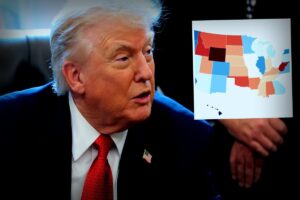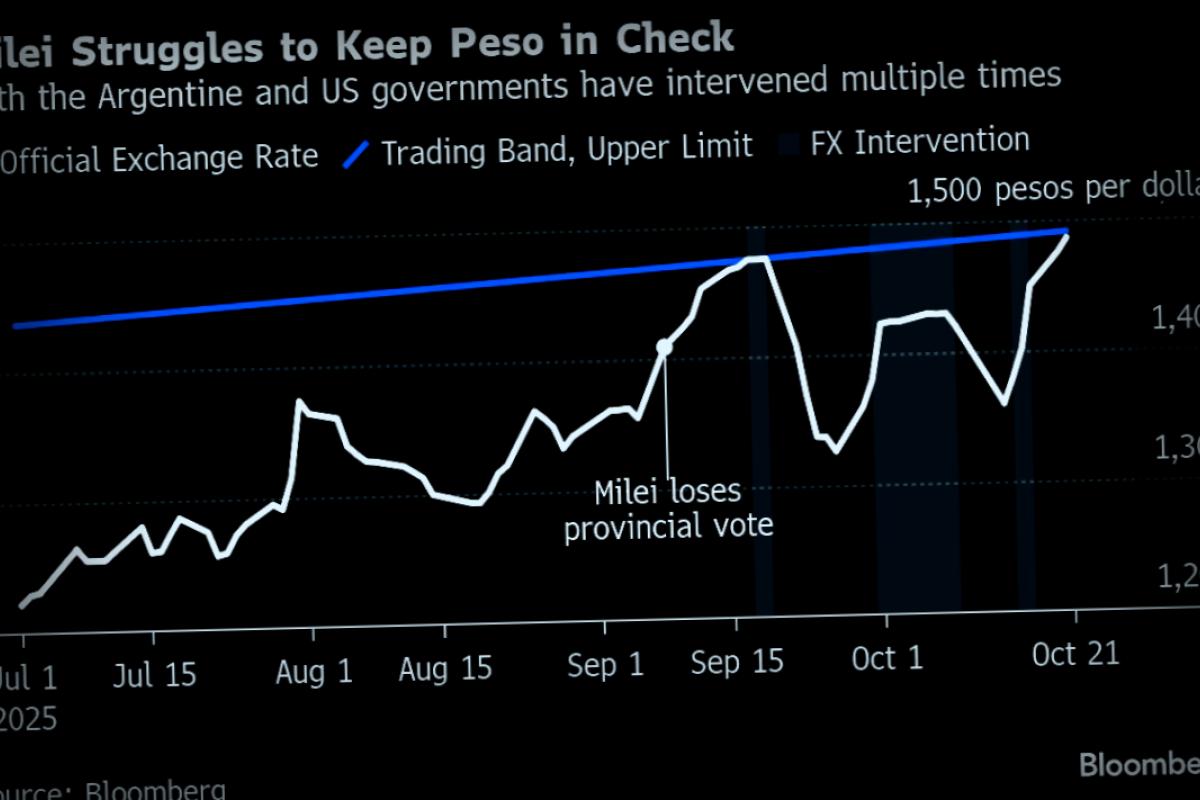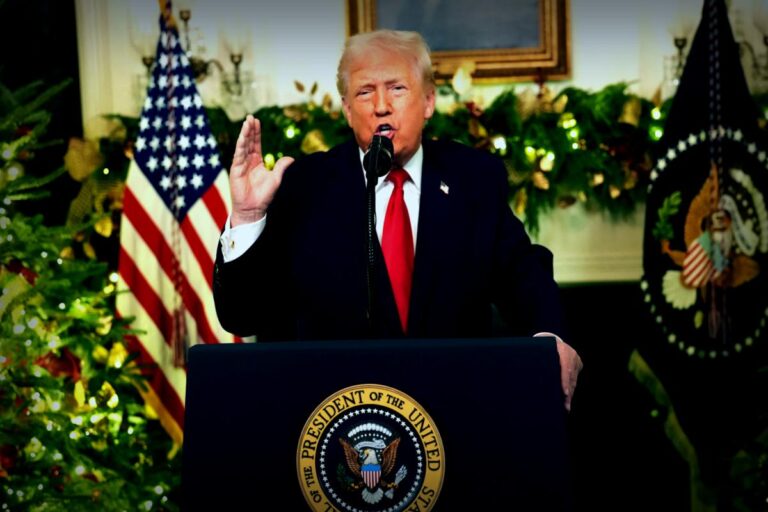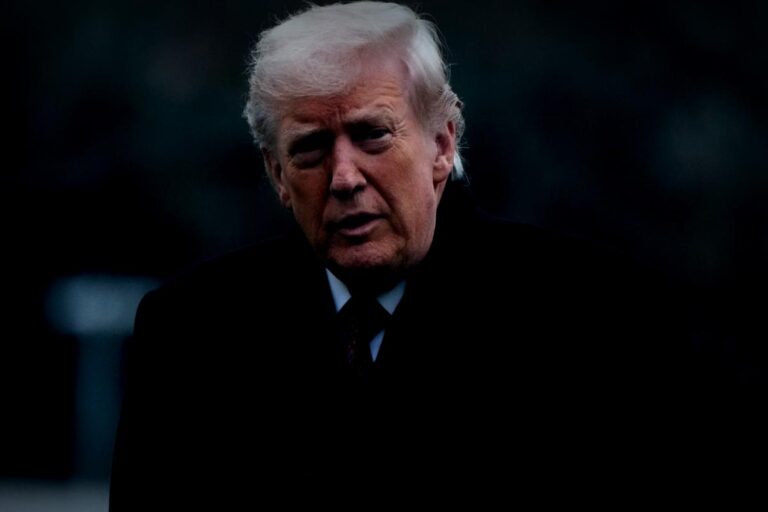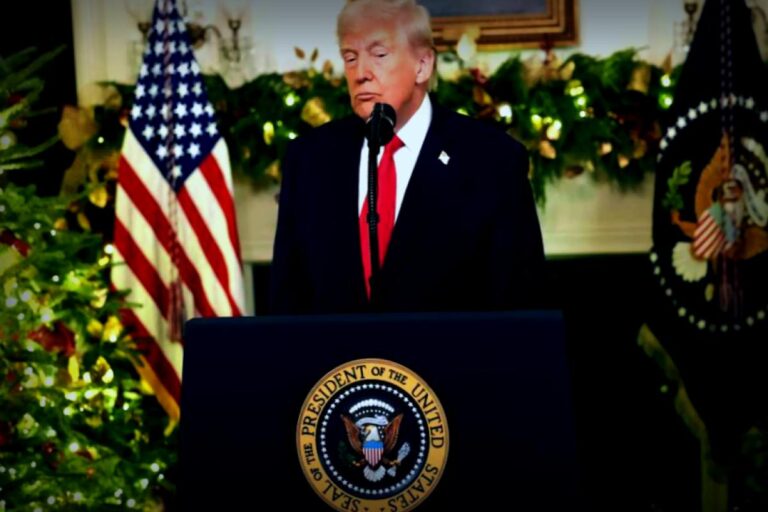Overview: The economic situation in Argentina is becoming tenser as the peso sinks to a record low. Financial markets are rocked as investors react to uncertainties surrounding the upcoming midterm elections and the just-announced US backing.
On Tuesday, the peso dropped over 1%, nearing the brink of its trading limits, which prompted Argentina’s central bank to intervene—this was the first time in about a month. Today, we learned that the US Treasury also stepped in, selling dollars to meet the overwhelming demand as traders reportedly offloaded pesos, anticipating a possible devaluation post-elections.
This downward trend has characterized the financial climate recently; responses to US aid announcements often lead to initial asset gains but quickly fade when specifics on the support remain vague. Although Treasurer Scott Bessent promoted a $20 billion swap line with Argentina as a beacon of economic hope, noting it’s meant as “an economic stabilization deal” rather than a bailout, skepticism remains rampant.
There’s a general feeling that without clear details on this aid—an omission by Bessent and local leaders including Finance Secretary Pablo Quirno—the outlook for Argentineu assets is dimming. Traders suggest that the country lacks adequate reserves to maintain the peso at its current value or uphold the currency agreement originally established with the International Monetary Fund earlier this year.
According to StoneX analyst Ramiro Blazquez, random proclamations from Milei and Quirno are unlikely to shift expectations, especially with Sunday’s elections looming ever closer.
On the bond market front, gains seen earlier in the day quickly reversed, with bonds set to mature in 2035 slipping by nearly 0.8 cent, resting at approximately 56 cents per dollar, per Bloomberg’s data. Following ongoing deterioration, the peso now rests at 1,490.5 pesos for a single dollar—just shy of its trading band limit. Later in the day, the central bank disclosed its sale of $45.5 million to stabilize the peso.
“Bigger investments are unlikely until we see how the elections unfold,” stated Walter Stoeppelwerth, chief investment officer at local firm Grit Capital Group. He added that potential downsides outweigh the upsides, even if the election serves to benefit Milei.
The US, particularly under Trump’s administration, views Milei as a supportive ideological partner within the region; help from the US for Argentina has materialized intermittently in recent weeks amid this turmoil.
Bessent reiterated that preventing another ‘failed state’ in Latin America is in the US’s best interest, emphasizing the importance of a strong and stable Argentina. However, specifics on the support have yet to be disclosed, and inquiries seeking additional information from the Treasury have gone unanswered.
Economic Insights:
Jimena Zuniga, a geoeconomics analyst, commented, “It seems that formalizing the swap might allow the Argentine government the flexibility to refrain from intervention when it’s not needed, which is vital due to rising domestic political pressure.”
Milei recently met with Trump, expressing a desire for assistance; however, Trump cautioned that this support would hinge on favorable election results, leaving investors apprehensive.
The ongoing situation remains fluid, with pressures escalating before the approaching Sunday vote. Meanwhile, the divide between parallel and official exchange rates is stretching further, following reports of the peso trading above 1,600 in unofficial markets. “They will probably keep up the support until Friday, but expect a significant uptick in dollar sales,” noted economist Juan Sola, observing that soaring expectations ahead of the election will likely drain more dollars from the central bank.




